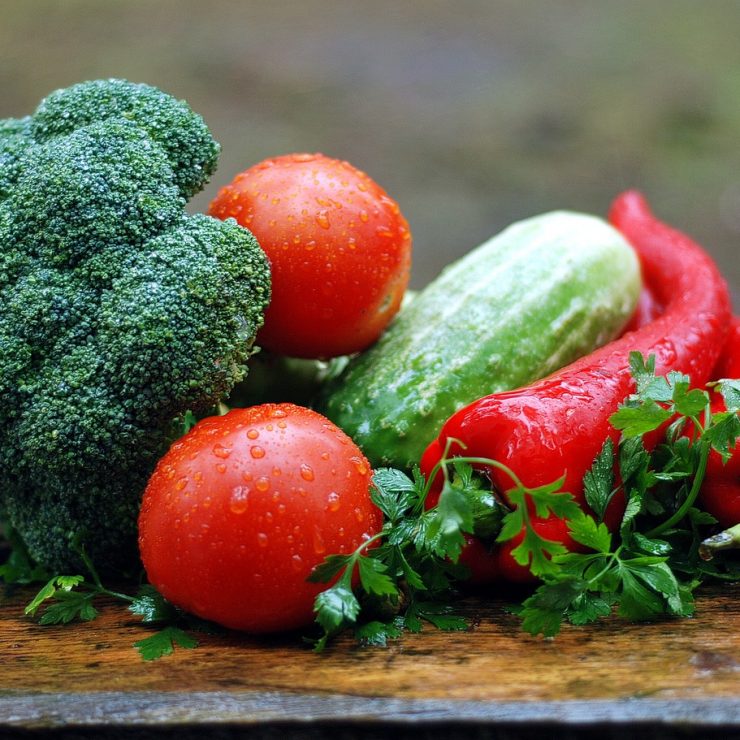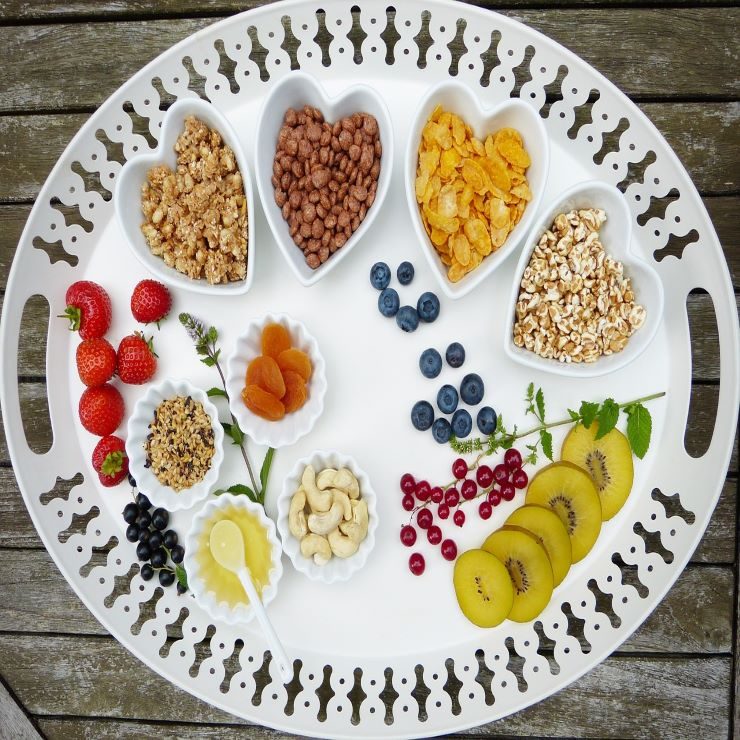Food and Mood
By Debbie Howitt

Some studies suggest that what we eat and drink can affect how we feel. But it can be difficult to know what to eat, especially when healthier foods can be more expensive and it can be hard to think about our diet when we’re struggling with our mental wellbeing.
Visit the NHS Be Body Positive website for more information on building a positive relationship with food and your body. Visit the NHS Body Positive Website for more information.
Second Step provides a range of free workshops, courses and group activities which are open to adults (over 18yrs) who live in North Somerset or are registered with a GP in North Somerset. Sessions are designed to explore, improve and maintain mental health and wellbeing. You can find the dates of upcoming courses and workshops on their website here

If you would like to book a place on any of their wellbeing activities, workshops or courses, please complete the booking form found here.
To find out what’s going on in September-October 2024, you can view the current prospectus here.

Eating problems
If thinking about what and when to eat feels like it’s taking over your life, this could be an eating problem. Eating problems can be about difficult experiences and painful feelings, as well as food.
See National Mind’s pages on eating problems for more information, including ways to get help and tips for how to cope. https://www.mind.org.uk/information-support/types-of-mental-health-problems/eating-problems/about-eating-problems/
How can food and drink affect how I feel?
We all react differently to the things in our diet. But there are some foods and drinks that may affect how we feel, in different ways. This section talks about food and drink that might affect how you feel, and has some ideas for how to manage this.
These tips may help some of us think about what to eat and drink. But they are only a guide. Some of us may find them less helpful or achievable, especially when we’re feeling unwell – and that’s ok.
The National Mind section on how to manage your diet when you feel unwell has some tips that might also help. https://www.mind.org.uk/information-support/tips-for-everyday-living/food-and-mental-health/#HowCanIManageMyDietWhenIFeelUnwell

Remember: it’s ok to choose more convenient foods if this is what feels possible right now.
Write down how food is making you feel.
If you feel able to, write down what you eat and make notes about how you’re feeling. Over time you might work out how certain foods can:
- Make you feel worse, or better
- Keep you awake or give you more energy
- Affect your sleep
When you’re feeling well and have more energy, it can help to plan ahead for times when you don’t feel well. Here are some ideas:
- Try making some extra meals to store. You could make enough to last for several days and freeze them in portions to heat up at times when you don’t feel like cooking.
- Write a list of easy, affordable meals to make when you’re not feeling well. This could include meals like beans on toast or jacket potatoes.
- Stock up on some staple ingredients, if you can. This could include cheaper things that are long-life or tinned. Or you could buy things that you can freeze to use later. These foods will last longer and could save you money.
- Get food shopping delivered to your home. This can save time, but can also be helpful if you don’t feel up to leaving the house or being in a supermarket.

Try to accept help from others
When we’re not feeling well, we may sometimes get offers of help from other people in our lives.
If you’re struggling and someone offers you help, you could suggest that:
- They help with practical things, such as shopping or ordering food
- You plan, cook and eat a meal together, to make the process feel less daunting
It can take a lot of energy to prepare food or to clean up afterwards. This may feel especially difficult when you’re feeling unwell. These tips could help make this process feel easier:
- Wash up as you go. Try washing up bit by bit as you are preparing food. This might help you feel less overwhelmed by the amount of washing up to do after you’ve finished preparing your meal. If you’re really struggling with washing up and it’s stopping you from eating what you need to, it might help to try using disposable plates and kitchen towels for a short while.
- Rinse dishes before washing them. This can stop food from sticking to them and make them easier to wash up.
- Make food all in one pot or dish. Some recipe websites or books have one-pot or one-tin recipes. These are useful for reducing the amount of equipment you need to use and clean.
- Try using pre-chopped or frozen fruits and vegetables. This can reduce the amount of food preparation you have to do. Frozen fruit and vegetables are also often cheaper than fresh versions.
The following information comes from the Association for UK Dieticians Website and can be found
here
Vitamins and minerals
When you don’t eat enough nutrient-rich foods, your body may lack vital vitamins and minerals, which may affect your energy, mood and brain function. The table below shows how not getting enough of some vitamins/minerals can affect your mood, and what you can eat to replenish your body.
You should aim to get your vitamins and minerals from eating a healthy, balanced diet with plenty of fruit and vegetables.
In certain circumstances or for certain people, supplements may be beneficial e.g. folic acid for all women planning pregnancy; iron supplements for people diagnosed with anaemia; vitamin B12 for vegans and older adults, and vitamin D for everyone in winter months, and all pregnant and breastfeeding women, older adults, and people with dark skin.
Carbohydrate = Glucose = Brain Power
To be able to concentrate and focus your brain needs enough energy, which comes from blood glucose. In fact, the brain uses 20 per cent of all the energy your body needs.
Glucose is also vital to fuel muscles and maintain body temperature. The glucose in our blood comes from the carbohydrates we eat – including fruit, vegetables, cereals, bread, rice, potatoes, sugars and lactose in milk.
Eating breakfast and regular meals containing some carbohydrate helps you have enough glucose in your blood.
Healthier sources of carbohydrates include wholegrains, vegetables, fruits, legumes and lower fat dairy foods. These are important sources of other nutrients as well, such as calcium and B vitamins.
Not having enough glucose in your blood (hypoglycaemia) can make you feel weak, tired and ‘fuzzy minded’. This may happen when you don’t eat enough carbohydrate-containing food, and is a particular risk if you have diabetes or do extreme exercise or manual labour. It can also happen if you follow a very restrictive diet or have irregular eating patterns.
Although glucose ensures good concentration and focus, once your blood glucose is within the normal range, you cannot further boost your brain power or concentration by increasing your glucose levels. If you are eating some carbohydrate foods, additional sugary ‘energy’ drinks are not needed and not helpful.

Comfort eating
There is a messenger chemical in the brain called serotonin, which improves mood and how we feel. Serotonin is made with a part of protein from the diet (tryptophan), and eating carbohydrate-rich foods may help more of this get into your brain.
This suggestion has been used to explain ‘carbohydrate craving’ – eating sweet, comfort foods to boost mood. There is not enough research to show that eating lots of protein foods containing tryptophan or eating a lot of carbohydrates can really support mood improvement in humans. But it may be that not eating enough carbohydrate (for example through a high protein/high fat diet) leads to low moods.
You also may have heard the idea that eating chocolate can make you feel happier, and there are observations that people feeling down are more likely to eat chocolate. This is probably because chocolate is a well-known reward and comfort food, rather than due to any potent physiological effects particular to cocoa.

Vitamins and minerals – effect on mood and what foods can help
| Missing vitamin/mineral | Effect on mood | Foods which can help |
| Iron
Not getting enough iron results in low levels of oxygen carrying haemoglobin in the blood, resulting in the condition anaemia. |
Feeling weak, tired and lethargic all the time. | The risk of anaemia is reduced by eating enough iron, particularly from red meat, poultry and fish, beans and pulses, fortified cereals. Avoid drinking tea with meals. |
| Thiamin B1, Niacin B3 or Cobalamin B12 (all B vitamins) | Tiredness and feeling depressed or irritable. | Fortified foods including wholegrain cereals, animal protein foods such as meat, fish, eggs and dairy. |
| Folate / folic acid | Increased chance of feeling depressed, particularly important in older people. | Folate is found in liver, green vegetables, oranges and other citrus fruits, beans and fortified foods such as yeast extract (marmite) and fortified breakfast cereals. |
| Selenium | May increase the incidence of feeling depressed and other negative mood states. | Brazil nuts, meat, fish, seeds and wholemeal bread. |
The gut-brain axis
There is some current interest in links between mood and the gut microbiome (the trillions of bacteria resident in the human colon). Consistent research outcomes are needed before any valid claims can be made about this.
Omega-3 fats
Long chain omega-3 fats (found in fatty fish) support the development of the foetus during pregnancy, particularly the brain. Some research suggests that diets containing omega-3 fats may help to reduce low mood states in adults.
Caffeine and the ‘drug-effect’
Caffeine, found in coffee, cola and energy drinks, is often called a drug: it acts as a stimulant and can increase feelings of alertness, and counter the effects of fatigue. However it may be that some of the effects of caffeine actually ‘normalise’ the lower levels of alertness felt by regular users who have not consumed enough caffeine that day.
Too much caffeine, particularly in people who are not used to it, may cause the adverse effects of irritability and headache. Such symptoms also occur with caffeine withdrawal in people used to lots of caffeine on a regular basis.
So does food affect mood?
There are many ways that foods can affect how we feel, just as how we feel has an influence on what foods we choose. Some of the mood/food effects are due to nutrient content, but a lot of effects are due to existing associations of foods with pleasure and reward (chocolate) or diet and deprivation (plain foods).
Some foods also have religious, economic and cultural significance, which will influence how we feel when eating them.

Summary
Feeling good comes from a diet that has enough healthy choice carbohydrate at regular times to keep blood glucose levels stable, and eating breakfast is a sensible habit.
Diets should also contain a wide variety of protein and vitamin and mineral-containing foods to support the body’s functions.
As a rule, plenty of fruits and vegetables and wholegrain cereal foods, with some protein foods, including oily fish, will support a good supply of nutrients for both good health and good mood.
Source(s)
Arens U (2018) Authorised EU health claims for carbohydrates and maintenance of normal brain function. In: Foods, Nutrients and food Ingredients with Authorised EU Health Claims – volume 3. Woodhead Publishing
Benton, D. and Cook, R. (1991) Selenium supplementation improves mood in a souble-blind crossover trial. Biological Psychiatry 29, pp.1092-98
Benton, D. and Donohoe RT. (1999) The effects of nutrients on mood. Public Health Nutrition, 2(3a) 403-409
Firth, J. (2020) Food and mood: how do diet and nutrition affect mental wellbeing? BMJ 369.m2382
Gilbody, S., Lightfoot, T. and Sheldon, T. (2007) Is low folate a risk factor for depression? A meta-analysis and exploration of heterogeneity. Journal of Epidemiol Community Health 61, pp.631-637
Gomez-Pinilla, F (2008) Brain foods: the effects of nutrients on brain function. Nat Rev Neurosci 9 (7) 568-578
Hulsken S, Martin A, Mohajeri MH, Homberg JR (2013) Food-derived serotonergic modulators: effects on mood and cognition. Nutrition Research Reviews, 26, 223-234
Nabb, S. and Benton, D. (2006) The influence on cognition and mood of the interaction between the macro-nutrient content of breakfast and glucose tolerance. Physiology and Behavior 87, pp.16-23
Rayman, MP. (2000) The importance of selenium to human health. Lancet 356, pp.233-41
Rogers, PJ. (2007) Review: Caffeine, mood and mental performance in everyday life. Nutrition Bulletin 32, pp.84-89
Rose, N., Koperski, S. and Golomb, B. (2010), Chocolate and depressive symptoms in a cross-sectional analysis. Arch Intern Med 170 (8), pp.699-703
Wurtman, RJ., Wurtman, JJ., Regan, MM., McDermott, JM., Tsay, RH. and Breu, JJ. (2003). Effects of normal meals rich in carbohydrate or protein on plasma tryptophan and tyrosine ratios. American Journal of Clinical Nutrition 77 (1) pp.128-32



